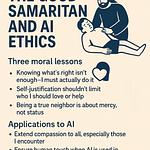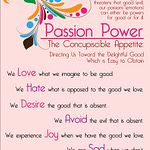Hello! I’m Saro Meguerdijian, and welcome to another week in Shattering Illusions. In this episode, we’re talking about legacy: what it means to leave something lasting behind, how free will affects any legacy we might try to build, and the ways that technology—particularly AI—changes how we think about inheritance and the future.
1. The Modern Urge to “Leave Something Behind”
In the world of tech and artificial intelligence, we see a growing passion for “leaving a mark”—whether that’s creating AGI that might radically improve (or transform) human life, or engaging in philanthropy that addresses diseases, inequality, or education. People want to be remembered, to achieve a sort of worldly immortality through their contributions.
This desire has deep historical roots. Historically, individuals have tried to secure a lasting impact by naming donations, constructing monuments, or producing influential works of art, science, or thought. You might think of Newton’s laws or Einstein’s theories—pieces of intellectual heritage that endure. Others leave behind material inheritances like family heirlooms, land, or property.
2. A Christian Worldview on Legacy
From a biblical perspective, legacy goes beyond fame or material gifts:
Proverbs 13:22: “A good man leaves an inheritance to his children’s children.”
Isaiah 56:4–5: God promises to give those who faithfully serve Him who have no children of their own, “an everlasting name that will endure forever.”
In other words, Scripture acknowledges the value of material inheritance (e.g., land allotments in Old Testament Israel) while also pointing to a spiritual dimension. In ancient Israel, land inheritance helped preserve tribal identity and prevent extreme poverty while teaching the law help passed down the faith. In the New Testament, without the theocratic Old Testament system, the emphasis becomes focused on passing on the faith—making disciples and expanding God’s kingdom.
3. The Reality of Free Will (and Bad Legacies)
Yet the Bible is also realistic about how easily a legacy can be wasted or misused. Ecclesiastes 2:19 poses the uncomfortable question: Who knows whether the one who inherits will be wise or a fool?
People have always been free to reject or misuse the legacies they receive. History is filled with harmful legacies—oppressive systems, toxic ideologies, or political structures that later generations had to dismantle. Conversely, some inheritances, like wealth or knowledge, can be a blessing or a curse depending on how they are employed.
This awareness leads to humility: you can’t fully control the future or force your descendants to preserve your intentions. At best, you can steward what you have responsibly and nurture the next generation’s character and faith, trusting they’ll continue what’s good.
4. AI, Economics, and the Changing Landscape of Inheritance
Today’s economic systems allow for all kinds of “creative” legacies—stocks, bonds, trusts, and more. But these can be volatile, and Proverbs 21:20 counsels prudence: “The wise store up choice food…but fools gulp theirs down.” Money can evaporate quickly, or it can multiply in unexpected ways.
Artificial Intelligence adds another dimension. AI can:
Generate new content (books, code, ideas) at massive scale.
Potentially outlive its creators, continuing to act or “think” after those who built it are gone.
Even serve as a trustee for assets, theoretically operating under a set of rules and values the owner established.
This raises novel questions: What happens if an AI designed to manage a trust or produce research keeps going beyond our lifetimes? There’s a historical precedent in the legal “Rule Against Perpetuities,” which limits how long you can control property from beyond the grave. Yet with AI, we could see “digital agents” carrying out our instructions indefinitely—which might overly constrain future generations.
5. What Legacies Should We Strive For?
Spiritual Legacy
The top priority from a Christian viewpoint is to nurture faith—both in our families and beyond. Handing down Bibles or church attendance alone isn’t enough; new generations need cultivation and discipleship to freely choose God’s ways.Ethical and Moral Legacy
We influence society through our values—love, truthfulness, justice. How we design AI systems and structure economic institutions matters. If future generations inherit powerful tools without the moral framework to use them responsibly, they can do harm.Relational Legacy
The direct love we share—family ties, friendships, community involvement—often impacts people more deeply than material gifts. Even the humblest person can leave a profound mark by modeling compassion and faithfulness in his or her local relationships.Intellectual and Creative Legacy
Books, music, scientific breakthroughs, or even open-source AI code can benefit those who come after us—if they use them for good. But these legacies are only as transformative as the character of those who inherit them.
6. Concluding Thoughts: Seeking an Eternal Perspective
Ultimately, God’s sovereignty offers comfort. While we can’t guarantee how our work or wealth will be used, we can invest in “treasures in heaven” (Matthew 6:19–20). A spiritual legacy that points people to Christ and cultivates love, justice, and truth stands a greater chance of enduring than any name chiseled in marble.
Yes, we should steward what we have—managing resources wisely and using technology creatively. But at the heart of it all, the best legacy is one rooted in God’s redemptive plan: calling each new generation to make their own free choice to follow what is good, righteous, and loving.
Thanks for reading and listening. Let’s keep exploring how the Christian faith, economics, and technology intersect—and how we can build a future that truly lasts.
Note: This post was summarized and refined with the help of an AI tool.








Share this post